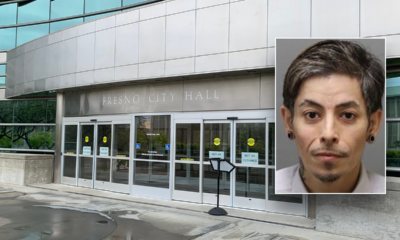The Tampa Bay Times article on Sunday about Florida’s polluted waters included many remarkable things, from the damage we’ve wreaked on the environment to the state’s utter failure to take the crisis seriously.
But one line in the story was more remarkable than most: “The Department of Environmental Protection declined to make its secretary or staff available for interviews.”
If you had to explain in a single sentence how this ecological disaster festered, that one line would do it, because it captures the indifference of Florida’s political leadership and the contempt for accountability that’s become a hallmark of state government.
A team of Times reporters and editors spent more than a year interviewing over 100 scientists, politicians, lawyers and environmentalists about the state’s polluted waters. The team traveled across Florida, analyzed millions of sampling results and submitted more than 140 public records requests to government agencies, part of what’s become a routine legal battle for newspapers in getting public records into the public domain.
These interviews and documents, which include thousands of pages of reports dating to the 1970s, showed the state failed to control pollutants for decades, allowing hundreds of Florida waterways to become dangerously polluted. One former state environmental secretary called the Times’ findings “embarrassing,” adding: “Clearly, much more needs to be done.”
So the question for DEP was simple: Your approach isn’t working, so what’s plan B?
In statements a spokesperson provided, the agency said that increasing pollution across the state is a concern, but that environmental changes take time. The canned response added little to the conversation, much less to the public’s understanding of a complex matter.
The lame Department of Environmental Protection response was another example of how state agencies use tax money to hide behind government publicists. Few resources are as critical to Florida as the health of its waterways, which sustain its people, fuel Florida’s growth and underpin the multibillion-dollar agriculture and tourism industries. If polluted water won’t get environmental regulators to the phone, what will?
This arrogance has become commonplace in Tallahassee. Agency heads are fine taking the jobs, the pay and pensions, but answering to the public — eh, not so much. Just consider the last couple of weeks alone. State officials have not answered questions about the Florida Highway Patrol’s plan to stop and hold immigrants on the highways. They’ve been mum about reports that state regulators may have buried consumer complaints against property insurers. Officials have not provided details about a new initiative to house detained immigrants in state facilities. And as of Tuesday, Gov. Ron DeSantis had not explained how $10 million in state settlement money was diverted to his wife’s pet charity.
Spend your days with Hayes
Subscribe to our free Stephinitely newsletter
Columnist Stephanie Hayes will share thoughts, feelings and funny business with you every Monday.
You’re all signed up!
Want more of our free, weekly newsletters in your inbox? Let’s get started.
Explore all your options
These are just recent examples, but they all show how serious questions about series issues go unanswered. The brush-off comes in many forms, from deflecting queries to outright refusing comment. But the message is the same: Get lost.
Florida’s Sunshine Law is great — on paper. But that right to access public records is a constant struggle. It’s gotten so bad in Tallahassee that even legislators from the governor’s own party are issuing demand letters to some state agencies, citing a “deep frustration” with the administration’s unwillingness to provide records and documents.
Sure, some of the Legislature’s digs at DeSantis are theater, payback for a lame-duck governor who has kicked around lawmakers for years. But state officials have also normalized a wall between their official acts and the people who empower them. That’s a daily hassle for reporters, but it leaves millions of Floridians in the dark. Residents need and deserve the information to build lives and businesses and make decisions about their future.
Here’s a group exercise: Next time you read that a public official “refused comment” or “declined to respond,” shoot that person an email — they’re readily available — and write in the subject line: “Answer the question.”







































